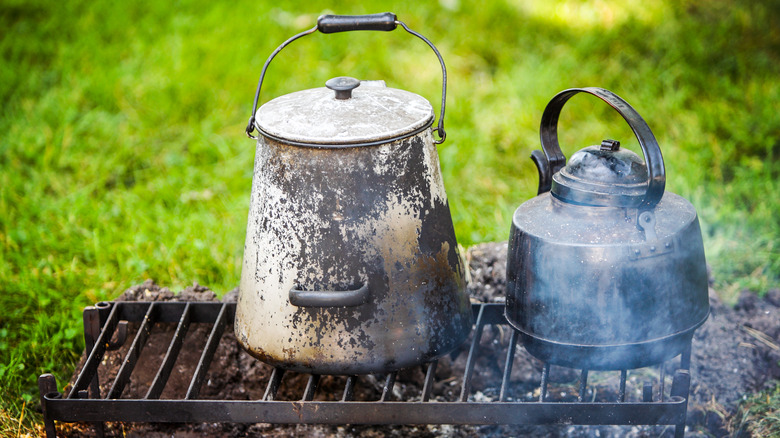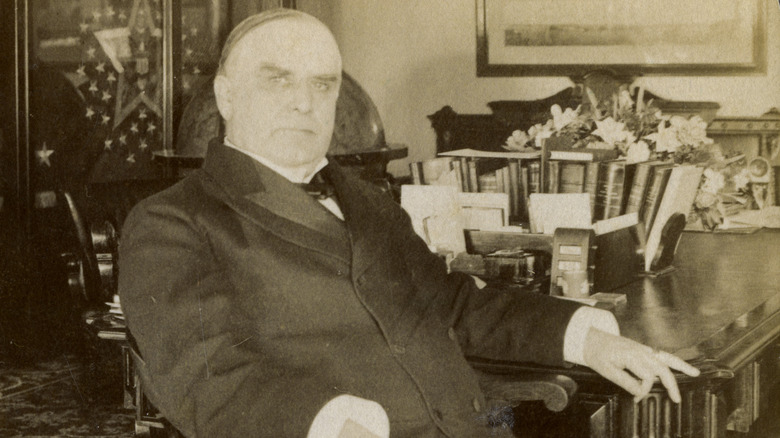How Hot Coffee Helped William McKinley Become President
Many coffee drinkers will attest that a good cup of coffee can feel like a lifesaver when they're exhausted, cold, or staring down a seemingly impossible situation. What many people don't know is that for troops in the American Civil War, that sentiment was more than a figure of speech. The American Battlefield Trust described the importance of a cup of joe to soldiers saying "it was what bolstered and also refueled them, increasing morale, providing comfort before a battle, and giving soldiers the fortitude to continue a march" and notes that 'coffee' appeared in Civil War soldiers' writings more than the words 'war' or 'slavery.' It is perhaps unsurprising then, that one man's dedication to serving coffee became an anecdote which helped win him the presidency.
In September 1862 at just 19 years old, future president William McKinley was serving as a Commissary Sergeant in the 23rd Ohio Brigade (via The National Parks Service). The unit was serving in Maryland and ended up fighting in the Battle of Antietam, the single bloodiest day of the war. As the National Parks Service notes, during the battle McKinley went under heavy fire to "personally and without orders serve hot coffee and warm food to every man in the regiment." Crimson Cup describes it as "the greatest coffee run in history" as the teenage soldier hauled heavy vats of hot coffee to exhausted frontline troops, an effort a contemporary described as the equivalent of "putting a new regiment in the fight."
A lasting legacy
McKinley's notorious coffee run may have had a significant impact on the war moving forward. The National Parks Service notes that although the North suffered heavy casualties, the battle ended in a Union victory and was later seen as a major turning point in the war as it gave President Lincoln the opportunity he needed to announce the Emancipation Proclamation, an effort that boosted morale.
After the war, McKinley became a lawyer and went on to hold office as a Congressman and the Governor of Ohio (per The National Parks Service). As Roadside America notes, McKinley used the tale of his actions at Antietam to his advantage telling the story repeatedly on the campaign trail year after year even as he ran for president, with the story becoming a bit of a well-known legend. McKinley was elected to two terms as president but was eventually assassinated in September 1901, almost exactly 39 years after the battlefield heroics. Despite his years of government service, Roadside America notes the only event in his life which has received its own monument is the Antietam Coffee Break, which has its own monument in Delaware depicting, in a bronze bas relief, the young president handing cups of coffee to his exhausted compatriots.

